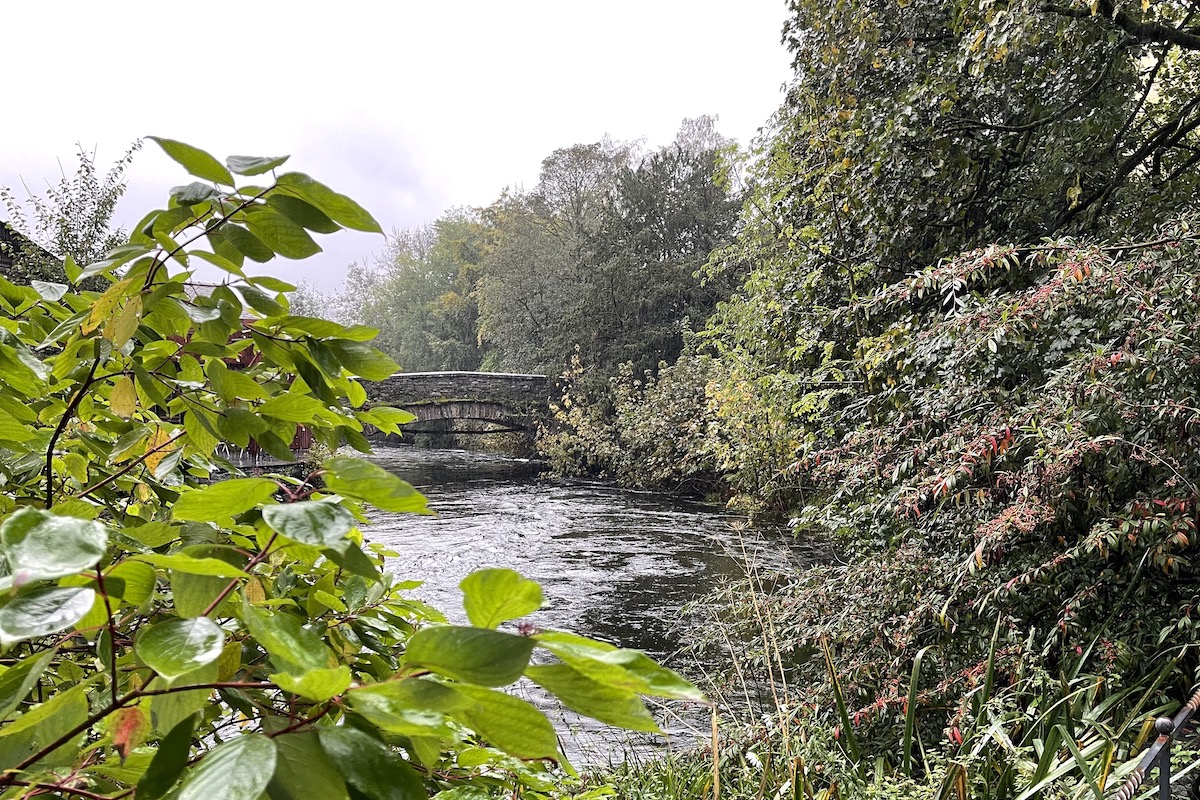Paul Is My Copilot
Two Former Santa Barbara Poets Laureate in the United Kingdom


Many years ago, a bumper sticker began appearing on the backs of cars driven by Christians. “God Is My Copilot,” it read. Not long after, an irreverent rewriting appeared for pet owners: “Dog Is My Copilot.” Although I can’t say Paul Willis is a better copilot than God, during our two-week poetry reading adventure in Great Britain last month, I learned that he is certainly calmer and more helpful than Dog. Whenever I was given to panicking while driving on the wrong side of a narrow road, trying to slip into an impossible tiny parking spot, or simply being cut off on the motorway by a 10-ton lorry, Paul invariably knew just the right thing to say or do, and exactly when not to say or do anything at all.
The roads we traveled in our rented Citroën C3 were many: the M5 and the M6 and the M40, the A59 and the A702 and the A1134. We drove down Cornwallis Street and Argyle Street and Trumpington Road. We read our poems in London and Cambridge and Worcester and Glasgow and Edinburgh and Ormskirk and Stoke-on-Trent and Oxford. The venues were lecture halls and classrooms, community centers (or centres) and, in Edinburgh, the Royal Scots Club. Our hosts at Staffordshire University created a nightclub-like atmosphere with blue lights and tablecloths and flowers, and the sound engineer at Edge Hill University treated us like pop stars. Our readings, just like those back home, were sometimes well-attended, and sometimes not, but there was never a moment when I felt any regrets.
And how did all this come about? Paul and I were trying to recapture the magic of a similar trip to Ireland taken five years ago with another former Santa Barbara Poet Laureate, Chryss Yost, and our respective spouses. This time around, however, only my wife, Sandy, would be joining us, and then for just one week of the trip.
Perhaps more than the readings themselves, I remember objects and places I never would have encountered otherwise. There was the 13-foot globe at the London School of Economics called “The World Turned Upside Down,” the Egyptian mummies in the Fitzwilliam and Ashmolean and British museums, the tunnels and ponds and gardens of Biddulph Grange, the glorious view of Edinburgh from the top of Arthur’s Seat, not to mention the many pubs we visited — the Tram Depot in Cambridge, the Britannia Inn in Oxford, the Paul Pry in Worcester, the State Bar in Glasgow. At Chester Cathedral, following up on my daughter’s ancestry research, I asked the clergyman if any Starkeys were buried alongside the bishops and earls. “No,” he said, “but that’s certainly a Cheshire name.”


Paul Willis, left, and David Starkey in Oxford and the Lake District | Credit: Courtesy
Not everything went according to plan. The steamer I planned to use to smooth out the wrinkles in my always-wrinkled clothes exploded in my London hotel room just after I bent down to check why it was taking so long to heat up. In the Lake District, walking the slippery path from Rydal Mount, Wordsworth’s grand final home, to lowly Dove Cottage, where he wrote most of his best poems, the rain soaked my running shoes so thoroughly that, when my wife arrived, she insisted I throw them away (to my nose, they didn’t quite smell like a dead body, but, to be fair, she had a point). Indeed, it rained, a little or a lot, every day we were in Britain. Our weekend in the Scottish Highlands was scuttled when most of the roads flooded, and sometimes the rain pelted the windscreen so fiercely I could barely see a thing.
Nevertheless, whatever the day before had thrown our way, the next morning we were back on the road, with Paul sitting where the driver should be and offering wise counsel, which was frequently contrary to our well-spoken GPS, while I mumbled and sometimes swore as we made our way to the next venue kind and crazy enough to host a couple of wandering poets from Santa Barbara bringing their humble words to the wide and wondrous world.





You must be logged in to post a comment.